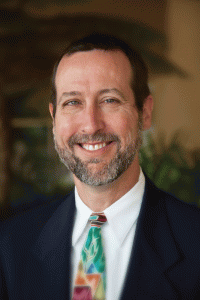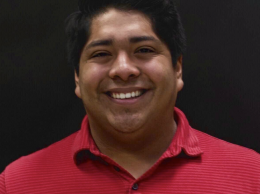Witman: The perils of undue trust in technology

Paul Witman
By Paul Witman
The Rev. Jeff Edwards, the 63-year-old pastor of the Parsippany United Methodist Church in New Jersey, deposited four checks at his Wells Fargo branch in April 2018. That same day, an unknown individual deposited four forged checks with someone else’s stolen ATM card at that same ATM. The forged checks were drawn from a New Jersey state agency.
Weeks later, the New Jersey State Police subpoenaed Wells Fargo to provide pictures of the person who deposited the forged checks. Wells Fargo sent pictures of Edwards. Follow-up investigation by the detectives indicated that there was a fifth check deposited at a nearby Wells Fargo branch, and that the person who deposited that check was a “dark-skinned” male. Edwards is Caucasian. The signatures on all five checks were reportedly similar.
Additional police investigation identified the recipient of the forged check deposits, a woman named Tyler Mathis. When interviewed by police on July 9 of last year, she reported that she gave her ATM card and PIN to a “dark-skinned” male to deposit some checks with the understanding that she would get part of the proceeds. She was released that same day as a victim of a check fraud scheme. Also that same day, detectives posted the Wells-provided pictures of Edwards to Facebook seeking public help to identify the suspect.
On learning of this posting from a church member, Edwards immediately e-mailed and phoned detectives, providing records of his legitimate deposits from that day. Detectives requested that Wells re-check their findings, given the other evidence in the case. Wells reported that they could confirm three of the forged checks correlated with Edwards’ pictures but not the fourth. Detectives later issued a second subpoena to Wells Fargo, asking again for photos of the suspect related to those four fraudulent checks. No information is publicly available about Wells’ response.
On Sept. 5, detectives asked Edwards to come to their office, over an hour from his home, to “wrap up” the investigation. During that interview, detectives suggested that they had access to additional information that might incriminate him and that it was in his best interest to come clean right then. They further suggested that if the case went to trial the Wells Fargo technology experts would testify and asked, “Who do you think the jury will believe?” Despite his similar set of legitimate transactions and the lack of physical similarity to the other suspect in the case, detectives arrested and charged him with third-degree check forgery, a felony.
During the interview, Edwards called Wells Fargo to see if it could provide specific information as to what time his legitimate deposits were made. A week later, when he called back, Wells reported that that ATM did not keep detailed records beyond two weeks. Wells could neither confirm nor deny the credibility of their pictures of him as the depositor of forged checks.
Four months and three court appearances later, charges were dismissed for lack of evidence. Certainly, this was not the worst possible outcome. However, Edwards said it was a pretty devastating experience for a pastor whose reputation was previously unblemished and is trying to protect not only his own reputation but that of the church he serves. And Edwards rightly asks what would have happened if the accused was innocent but looked more like the actual suspect. What if the accused hadn’t had access to good legal services?
Information technology professionals have a responsibility to deliver the right information, to the right people, in the right format, to enable informed decision making. As citizens of the world, we all have a responsibility to ask good questions about the information we use to make decisions and to carefully consider the consequences if our information sources are wrong. I would hope that when we see or hear information on which we need to act, that we be appropriately skeptical and take steps to be confident that it’s correct.
• Paul Witman is a professor of information technology management and director of graduate programs in information technology at California Lutheran University.











